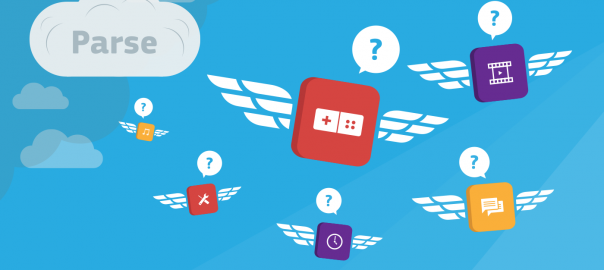Parse’s announcement that it will be winding down has surely come down as an unfortunate surprise to a lot of app developers especially indie developers who found the holy grail in Parse. Lot of well known apps have been written with Parse as a backend and there are still quite a few apps with millions of installations that are using Parse as the backend. It appears that Facebook has mercilessly pulled the rug from under these app developers.
Of course one year is a lot of time to do the migration but this means that the focus of the app developers will now have to shift on how to migrate their existing users to a new backend while still maintaining the roadmap for their products. It suddenly seems that they have to reprioritise their entire roadmap for the next year to handle this critical situation in hand.
Parse was widely used by many app developers for its Core, Push and Analytics features. Lot of well known apps have been built on Parse. It removes a lot of headaches from the mobile backend development equation by providing them as a service for minimal or no cost. You just had to worry about your app features and your data. They even provided push notifications and analytics. So basically it was a one-stop solution for all your backend and cloud dependent features.
But with Parse passing on, developers will not only have to scramble for alternate solutions but also decide how they want to migrate their existing database of users, device push tokens, segments, push audience etc.
If you are using just the Parse core, then you are probably in a better place than people who use their push and analytics features. The issue is that push and analytics makes use of specific Parse features which cannot be migrated that easily.
For example if you are using audience or channels features to segment push audience, it may not be possible to easily migrate them into a different system. The new system should have an equivalent; besides you have to migrate the entire push notifications token database of all the platforms into a different system while maintaining the schema as much as possible. Also the apps will have to be updated to make use of the new push notification backend and also map your segmentation of users to the new systems. This could probably require a major rewrite depending on the complexity of your segmentation business logic.
If you are using just the Parse Core then you are in a better position since you own the database schema and you would just have to migrate it to a new server. You could then host the Parse server in a cloud instance and direct the app to new server. But the migration will not be as complex as the push notification migration. Nonetheless all apps using Parse will have to be updated within a year to point to the new backend because come Feb 2017, apps still using Parse will have nobody talking on the other side of the apps.
One thing Parse could do is to provide web hooks to their device push registration APIs so that existing apps can still use Parse APIs. But on the server side Parse will use these web hooks to pass the device registration calls to the new backend.
What are the options for existing clients who use Parse?
Depending on what you use Parse for you have many options that you can opt for: Parse provided API hosting, push notifications, analytics and configuration features.
If you are using Parse for APIs then you could use the open source Parse Server and host it in cloud (preferably one that’s not going to be terminated) and migrate your Parse database to MongoDB in your cloud. Your apps will have to be updated to point to the new server but the changes to your app logic will be minimal since Parse assures that the same SDK will work and the updated SDK would allow you to set the server to use for your APIs.





